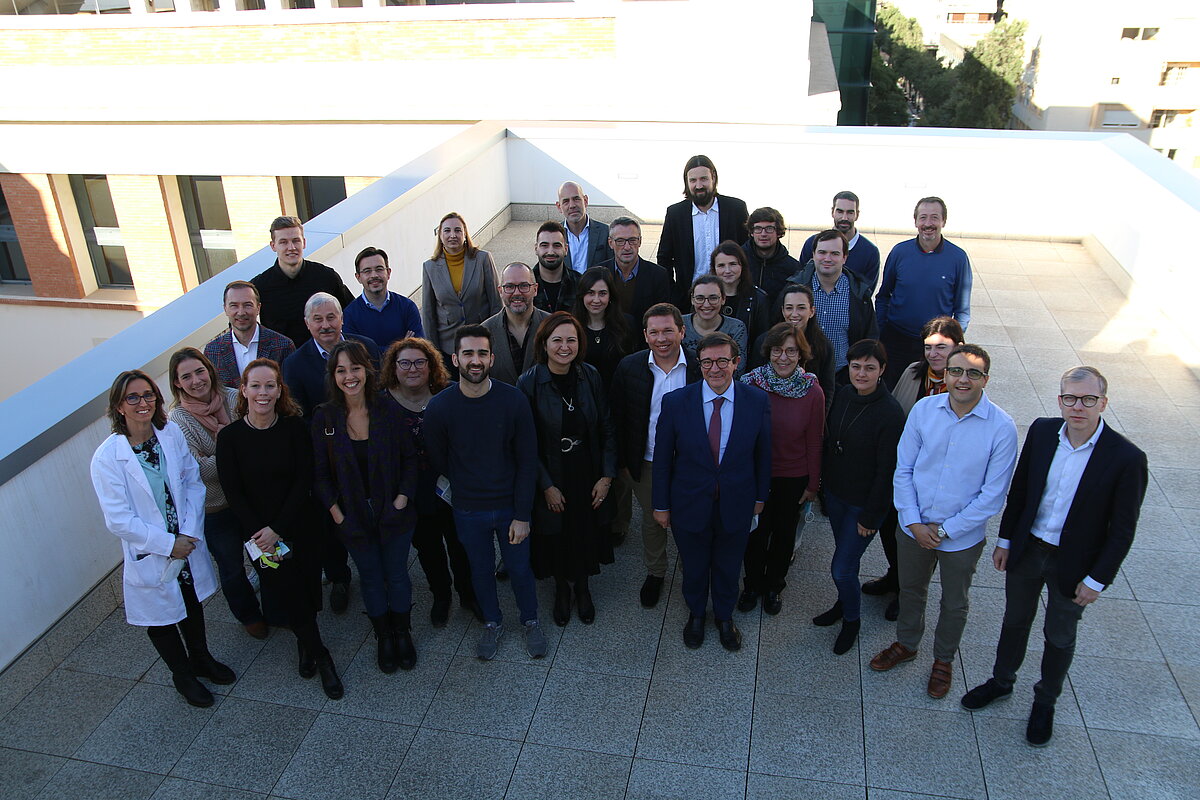
The project, called AIDA (An Artificially Intelligent Diagnostic Assistant for gastric inflammation), launched this January and held its kick-off meeting at INCLIVA, has a four-year duration and is supported by over 7 million euros between European and British funding.
The project is coordinated by INCLIVA Biomedical Research Institute. The project consortium comprises 15 centres of excellence from eight European countries, including the Latvian University Institute of Clinical and Preventive Medicine. The consortium brings together a multidisciplinary team including some of the leading European authorities on gastric inflammation and cancer (areas of epidemiology, immunology, oncology, pathology and gastroenterology), experts in bioinformatics, artificial intelligence and machine learning and in data governance and privacy, representatives of the public administration and patient advocates.
Gastric cancer is the fifth most common cancer type and the third leading cause of cancer death in the world in both sexes. It affects almost one million people, and to date no strategy has improved the prognosis of the disease. It causes 783,000 deaths a year, and the survival rate for patients at an advanced stage is only about 12 months.
Despite current multimodal treatments including surgery, chemotherapy and radiotherapy to improve loco-regional control and reduce the rate of tumour dissemination, progress is still limited, and more action is needed in primary and secondary prevention.
Most cases of gastric cancer are detected at late stage, so diagnosing those at risk of developing gastric cancer in the presymptomatic stage could significantly improve their prognosis. A wealth of data is available on the risk factors for developing gastric cancer. Individually, none are supported by robust evidence, but combining and correlating them will provide a much clearer picture.
AIDA: an assistant to guide strategies for gastric cancer prevention
The AIDA project goal is to create an AI-powered tool to help clinicians diagnose precancerous inflammation, provide personalized medical follow-up, recommend action to monitor patients’ health status, and select treatment. AIDA will pool together data from different sectors, including research and innovation centres, clinical partners, industry and patients, while adhering to European data protection law.
AIDA is one of 13 European projects to obtain funding through the Horizon Europe program in the HORIZON-HLTH-2022-STAYHLTH-02-01 call for proposals, having been selected from among the 72 proposals submitted within the health cluster. Horizon Europe is the largest research and innovation program in the European Union and carries out a thorough evaluation of all submitted proposals before granting funds.


Funded by the European Union (grant number 101095359) and supported by the UK Research and Innovation (grant number 10058099). Views and opinions expressed are however those of the author(s) only and do not necessarily reflect those of the European Union or the Health and Digital Executive Agency (HaDEA). Neither the European Union nor the granting authority can be held responsible for them.

 LU konference
LU konference